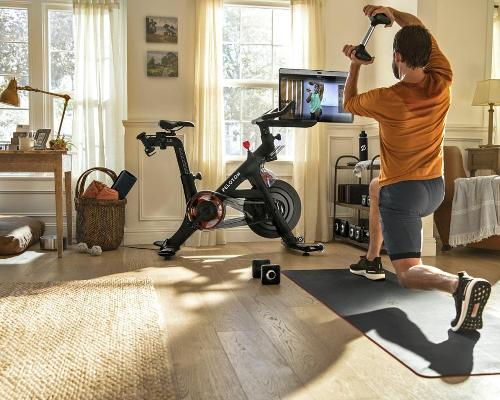Without taking a protein drink, my husband fades away to nothing when he’s exercising. Using one on a regular basis has helped him build lean muscle and made recovery much faster. I’ve also found that drinking a protein drink after exercise stops me feeling ravenous and picking at naughty food.
If I wasn’t aware of these benefits, it might be helpful if my gym were to tell me. However, if they did so while standing in front of a shelf full of nutritional products for sale, they would be contravening new European guidelines. They could tell me that “protein contributes to growth and the maintenance of muscle mass” – but specifying lean muscle and talking about recovery would stray into murky areas.
NHCR guidelines
The European guidelines, Nutrition and Health Claims Regulation, came into force in December 2012 after a six-year period during which the claims being made by products were assessed. Prior to this, food legislation only defined the mandatory information required on labels, and prohibited misleading or false claims. The new guidelines now clearly state that only certain health and nutrition claims can be made about food, thereby harmonising the rules on claims across the 27 EU member states.
The burden of proof has changed. Previously, when a claim was challenged, a business had to prove it was true. Now the business has to get authorisation before being able to use the claim.
The aim is, of course, to protect consumers by stopping false claims from being made. However, the move deals something of a blow to the sports nutrition and food industry as a whole, by requiring incredibly robust scientific studies to back up the sort of claims that have traditionally been widely used by nutritional supplements, such as “contributes to the growth in muscle mass”. Only authorised claims can now be used in commercial communication.
Dr Adam Carey, chair of the European Specialist Sports Nutrition Alliance (ESSNA), explains why the legislation has been introduced: “Health and nutrition claims made in relation to food products require authorisation before they can be used in the labelling and marketing of food products.
“Within the context of a rather complex procedure, the European Food Safety Authority (EFSA) is responsible for verifying the scientific basis of claims. Under old legislation, the burden of proof was different and EFSA did not assess claims – it was a national competence. This legislation has been adopted to protect the public from spurious and false claims made by some food manufacturers. It seeks to ensure advertising and marketing of products is clear, accurate and based on evidence accepted by the scientific community.”
According to the ESSNA, over the last couple of years organisations in the food industry from across the EU have submitted more than 40,000 dossiers of supporting information for their health claims to be assessed. EFSA grouped similar claims together, with the result that around 4,000 different claims were put forward to be reviewed. EFSA has now assessed just over half of the dossiers, and to date only a little over 200 health claims have been approved by the European Commission. Any claims that were rejected in this round of assessment can no longer be used.
Any scientific claims that were based on inconclusive evidence – ie where the claimed benefits might or might not transpire – or claims that were shown not to be deliverable 100 per cent of the time have also been thrown out.
There are currently still a number of claims under evaluation, but decisions on these are expected soon.
Questionable process
But while the new legislation has consumer interests at heart, some of the verdicts are questionable, and the rejection of some claims doesn’t mean they are actually untrue. Guidance on preparing dossiers for health claims was thin on the ground, meaning insufficient evidence, or sometimes even the wrong kind of evidence, was submitted to EFSA. There were also instances where claims submitted under the wrong category were not even considered.
For example, according to this legislation, only mineral water can rehydrate the body. Even though orange juice can in practice also rehydrate the body, it missed accreditation because it contains sugar and other substances that don’t serve any rehydration purpose.
Carey also believes it’s fair to say that, when authorising claims, the authorities did not always take into account the specific needs of a particular group of the population, including sports people.
For example, despite being scientifically proven, the health claim for sodium tablets – the maintenance of normal muscle function – was rejected, because it went against general public health guidance to reduce levels of sodium intake. However, this failed to take into consideration the fact that elite sports people have different needs from those who are less physically active: sodium is more important for individuals exercising at high intensity, notably athletes. Expert bodies such as the International Olympic Committee have acknowledged that electrolyte losses, including sodium, must be replaced with either sports drinks or foods. Without this, hyponatremia – a condition of low sodium concentration in the bloodstream – can occur.
Legislation that was meant to protect the consumer therefore risks stunting innovation, reducing information flow and leading to products being taken off the shelves or made harder to buy.
The good news
But there is some cause for optimism: Carey says the sports nutrition industry has fared better than most, with its claims doing well in comparison to those of other food sectors.
For example, all claims for probiotic products have been rejected. Meanwhile, most claims for vitamin and mineral products have been approved, as well as the benefits of protein, creatine and carbohydrate-electrolyte solutions.
What has been proven, and what gyms can happily say to their customers, is as follows:
- Products containing protein contribute to growth and the maintenance of muscle mass.
- Creatine increases physical performance in successive bursts of short-term, high-intensity exercise.
- Carbohydrate-electrolyte solutions contribute to the maintenance of endurance performance during prolonged endurance exercise, and enhance the absorption of water during physical exercise.
Furthermore, there is some hope that the legislation might be relaxed in the future, as EFSA takes on board the particular requirements of sports nutrition. “Policy-makers and other stakeholders have recognised some of the challenges around sports food, and in the next few years the European Commission is due to prepare a report assessing sports nutrition regulation,” says Carey. “We hope this will clarify some of the regulatory challenges faced by the sports nutrition industry, and ESSNA is actively engaged on that front.”
In the meantime, in the UK at least, the legislation will not immediately be aggressively enforced, as a short settling-in period has been permitted, provided businesses show they are undertaking steps to comply. However, some EU countries have already started enforcement. Manufacturers may have to change their packaging, and going forward their relationships with clubs – offering clubs advice on how to sell and offer product samples – will become even more important.
Gym staff certainly shouldn’t be put off selling nutritional products to customers, but they will need to inform themselves of the facts (see information box below).
It will also be more important than ever for staff to understand the product and the goals of the client. Lynn Clay, technical education manager at Maxinutrition, advises: “Get to know members and provide genuine recommendations that will support their results and offer solutions, rather than trying to sell them a particular promotion.”
Gym goers should also be encouraged to do their own research and talk to people who use the supplements: good products speak for themselves, and those using them can still be used as unofficial advocates, as the new legislation doesn’t cover non-commercial communication.


























































